Film + TV
Zamo Mkhwanazi’s ‘Laundry (Uhlanjululo)’ at TIFF 2025 Is an Intimate Portrait of Family, Resistance, and Art Under Apartheid
The film, which is showing at this year's Toronto International Film Festival (TIFF), explores the human cost of life under an oppressive regime.
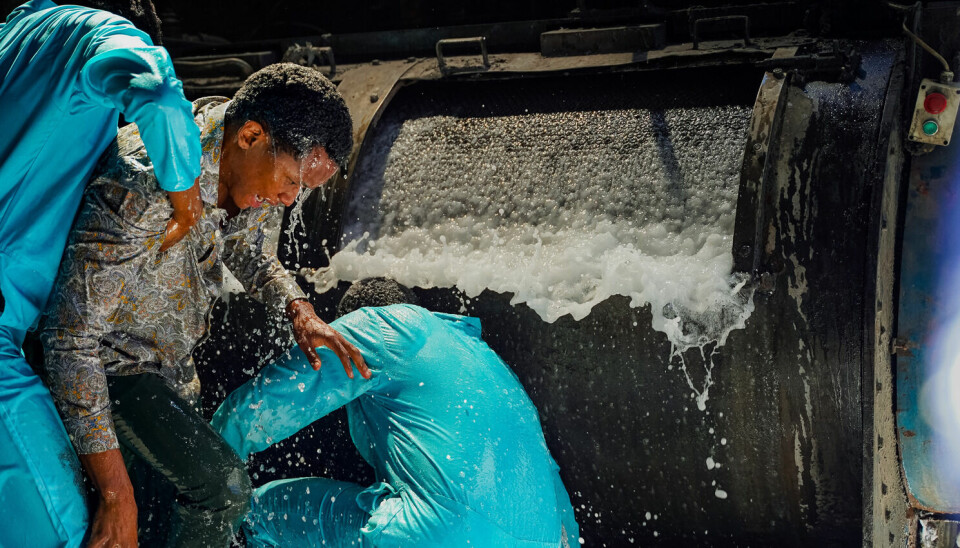
In Laundry (Uhlanjululo), Zamo Mkhwanazi’s quietly impactful feature directorial debut, members of a Black family navigate the social, political, and institutional tensions created by the apartheid system. Set in 1968, Laundry, which premiered in the Discovery section of the ongoing Toronto International Film Festival (TIFF), is a potent period drama that lays bare the challenges and complexities of existing under a brutally racist regime.
A unique arrangement allows protective patriarch Enoch Sithole (Siyabonga Shibe) to operate a family-owned laundry business in a part of town that is labelled whites-only. This operation soon becomes a hub for Black people in the neighborhood. Though technically allowed to work in the neighborhood, the business is not immune to intimidation by oppressive state actors. When the patriarch is targeted and imprisoned, talented sixteen-year-old Khuthala (Ntobeko Sishi) takes it upon himself to free his father, even if it means deferring his own dreams of becoming a musician.
“The laws in apartheid era South Africa were completely insane, and they were also both inconsistent and inconsistently applied,” Mkhwanazi tells OkayAfrica from her hotel in Toronto. But instead of zeroing in on the specifics of these indignities, Mkhwanazi is more concerned with the human cost of this oppressive system.
Laundry is an ode to artists and the freedom of chasing dreams. The film is also a sober lamentation for the unquantifiable talents lost to a system that viewed Black bodies and minds only as tools for capital.
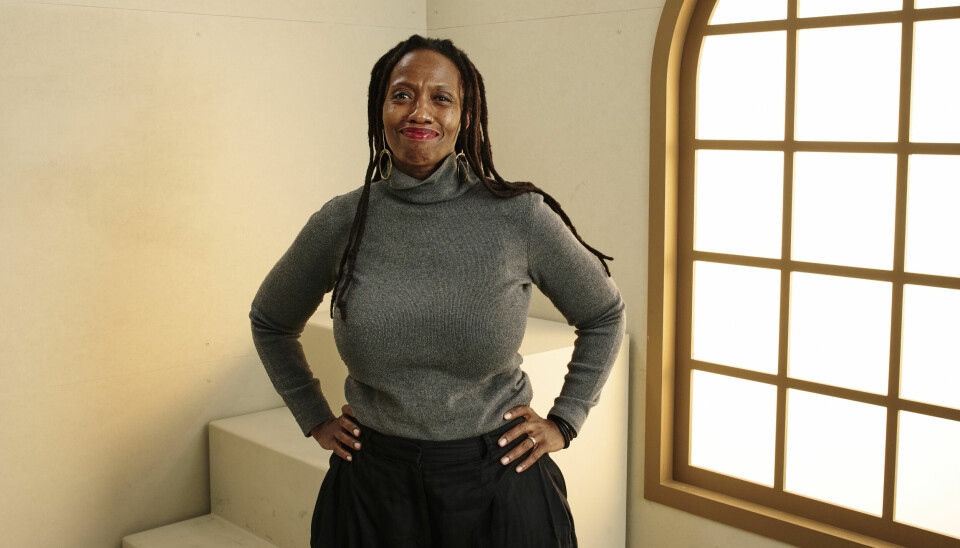
OkayAfrica: How did this idea crystallize?
Zamo Mkhwanazi: The film is inspired by something that happened to my mother’s family. My grandfather owned a laundry, and in 1954, about six years into the apartheid government, the business was taken from him, and he lost his livelihood.
The laundry is a key character in the film, and there is this sense of connection with the space that can be gleaned from the way that you film it.
It has a lot to do with the luck that we had in finding this laundry that has basically been running since 1949. They still had a lot of the same equipment from the earlier days. But because it is really a big business, we also had to make the location into a family space. The balance we had to find was how to make this industrial-scale operation with big machinery a small enough space to be able to tell an intimate story. Our production designer, Gavin Scates, was clever, and we had to find very creative ways of hiding the modern machinery. This, I think, helped create a sense of coziness and depth.
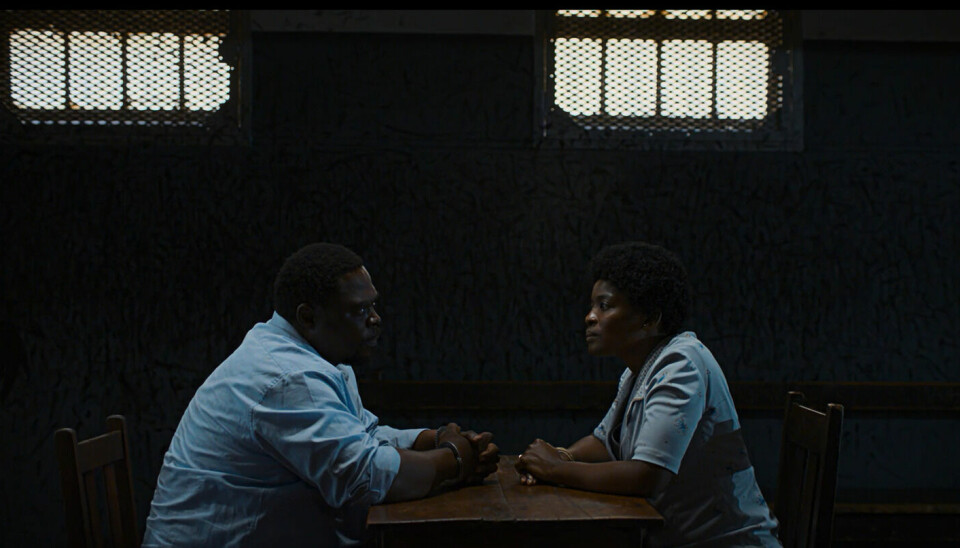
The cinematography is ravishing. The actors are photographed so beautifully, but also the spaces and the props. Tell us more about the visual design.
I have a very real and strong artistic appreciation of Black skin as a canvas. This is on an aesthetic level, separate from the political. Siyabonga Shibe, who plays the father, Enoch, has got the most beautiful skin complexion, that there was really no kind of lighting that could go wrong on him. When we were grading the film, we had to stop looking at him because he makes everything just look nice. It is a pleasure for me to look at Black skin, and because we haven’t seen nearly enough images of us onscreen, there is still so much to explore.
Laundry is a period piece. How do you approach creating this world for the screen?
The film was shot in Boksburg and Benoni, east of Johannesburg. It is one of those things where the negative comes with the positive because these are economically depressed areas that have not attracted a lot of investment over the years. A lot of architecture and infrastructure still looks the same from back in the day. We were able to find quite a small radius of space, and this allowed us to minimize the amount of work we would’ve done otherwise. The exteriors were there. We had to do more work on the interior spaces, but even some of them we could work with. Production design was key; we had to get the props, classic vehicles, wardrobe, etc.
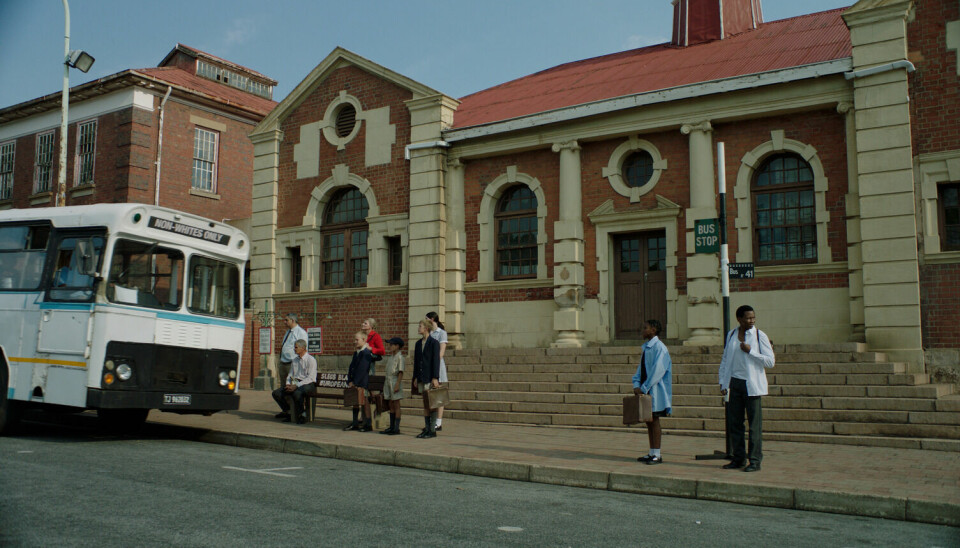
Is there a particular reason you chose to set the film in 1968, and why does that period speak to you?
1968 marks the end of the sixties and heralds the beginning of the seventies, and to me, that was a pivotal time in South African history. The Sharpeville massacre of 1960 was a sort of turning point, as it happened at the same time African countries were getting their liberation through independence. So, there was this understanding that the work wasn’t done. I remember older people telling me that there was huge optimism for the rest of the continent, and then there was South Africa in contrast, which remained in the belly of the beast.
For me, this was interesting because it was a key moment in South African history, African history, but also in global Black history. Artists at the time were escaping into exile, where they were speaking out and working extensively for the cause. Miriam Makeba went to the United Nations and hung out with the Black Panthers.
It was a moment of choice for a lot of people: do you leave your home and fight abroad, or do you stay behind and fight the system from within? 1968 was also the year that Martin Luther King was assassinated and the year of the summer Olympics, with the Black American athletes who held their fists up in protest. The seventies were around the corner, and we know that the seventies were also a period of huge turmoil in South Africa. I wanted to touch the optimism on the continent that maybe freedom was possible. It felt like it was the right moment to place the characters.
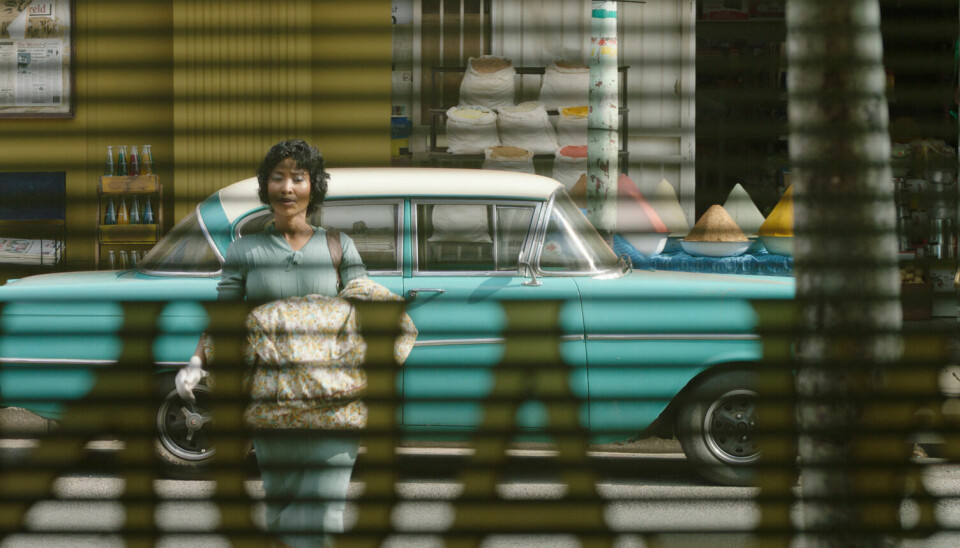
The film also captures the specific cultural and sociopolitical tensions of the era. The “Dompas,” for instance, was a thing…
The Group Areas Act is basically the law you see in action in the film. It states that Black people may not live or own a business in certain areas. But it is a thing that has never entirely worked. This apartheid era is notable for how much of it did not work, or worked very badly. Sometimes people just circumvented, ignored, or just kept going until someone physically took them out. That is the kind of resistance that I also wanted to highlight.
A lot of resistance is just ignoring the oppressor and their laws and doing whatever it is you need to do in order to survive. I wanted to put a sense of those laws into the film, but at the same time, I didn’t want to spend a lot of time showing how the system functioned or the specifics of how these laws were applied. I wanted to create a sense of unease so that the audience can understand that mere existing, or walking from point A to B, is fraught with danger.
And I know that these kinds of things have happened in so many places in the world under different names. Even at the airport, the brown people with their green passports are all waiting in line for two hours while the whites in their blue passports breeze through.
And you have to behave a certain way while in line, waiting…
Exactly. You police yourself even before anyone talks to you. You cannot even ask a question because you know there will be punishment for you just wanting information. I want you to have the same feeling you do at the airports.
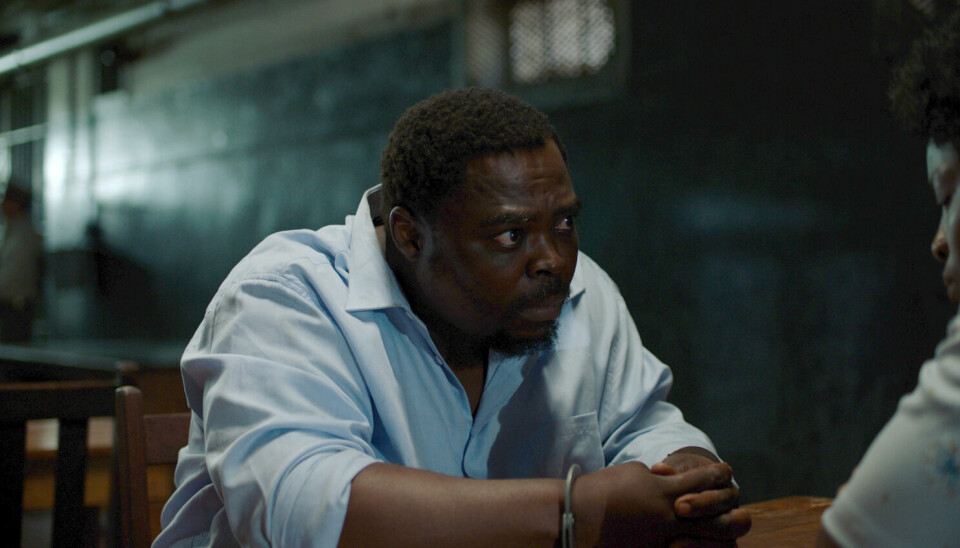
Music is a key part of the film and I am sure you will hear this often, but the film reminded me on some level of Ryan Coogler’s ‘Sinners.’
This is the greatest compliment, and no one has said this to me.
But it does. Music becomes this tool of resistance, and you have this scene in your film that demonstrates how the music is born out of pain and struggle, literally.
I had to do music. I am South African. I'm sorry. I am not even trying to fight my own conditioning. It’s like ‘what else can I do?’ I often say that music in South Africa is like mustard in Dijon. Everyone’s life in South Africa is touched by or connected to music in some way. Someone asked me if I have musicians in my family, and my response was that everyone in South Africa does. We all qualify for that one.
I also have a great regard for artists in general. That ability to create something out of nothing and to have that creation spread and touch people’s lives and make a difference to them, for me, that is a miracle. South African musicians during the apartheid era did their part, especially when you think about how small the country is in terms of numbers and the things that were taken from us — and they took everything.
I wanted to make a film about something that could not be taken away. So-called Western civilization is just theft when you think about it. They steal, package, reinvent, and sell. Music is one of those things that they have tried but have never managed to steal from us. Even when you see someone else singing that song, it will never be the same. It just cannot be replicated. The artist cannot be replicated.

